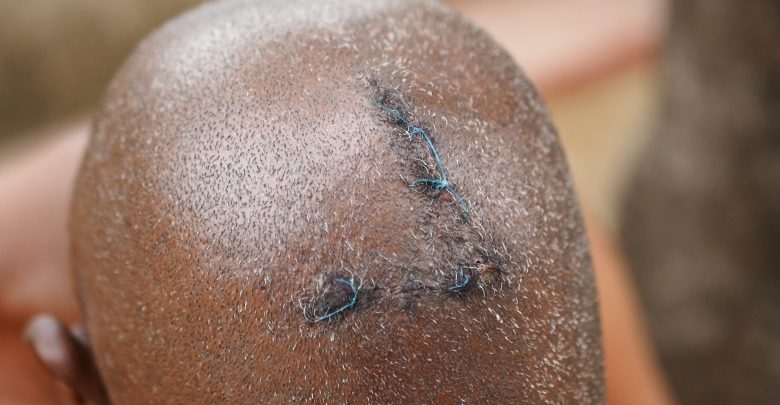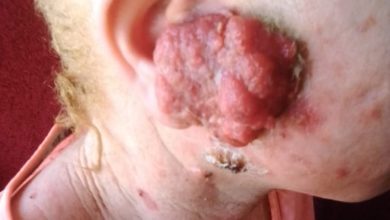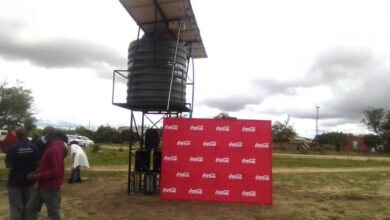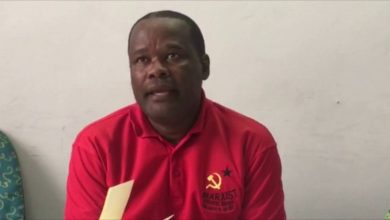
2019 will go down in Zimbabwe as the ‘year of beatings’ as citizens experienced the heavy hand of the country’s security forces.
The year was marred by massive price hikes that ignited anger, with the opposition calling for nationwide anti-government demonstrations resulting in widespread torture, abductions and beatings.
The year opened on a sad note when on January 14, 2019 protests against a steep fuel price hike announced by President Emmerson Mnangagwa.
This was to be one of the biggest crackdowns in the country by the government in recent history.
Dubbed #ShutdownZimbabwe, the protests started after a three day stay away was organised by the Zimbabwe Congress of Trade Unions (ZCTU).
However, the stay away degenerated into a violent protest as lootings of businesses, mostly supermarkets occurred while people engaged in running battles with the police.
The violence stretched for almost two weeks as Bulawayo experienced the worst damage with more than 200 businesses being looted while most of the city infrastructure including road signs, traffic lights and road cables were destroyed.
Armed soldiers and anti-riot police conducted nightly raids and took part in door-to-door operations seeking for people suspected to have participated in the nationwide protests.
According to human rights groups, at least 17 people were killed including a police officer while horrific stories of gross human rights violations by security forces emerged.
Besides the 17 deaths, there were 17 cases of rape or other violations of a sexual nature, 26 abductions, 61 displacements, 81 assaults consistent with gunshot attacks, at least 586 assaults and torture, inhuman and degrading treatment including dog bites, 954 arrests and detention (including dragnet arrests), among other violations, which were recorded during the two week long brutal crackdown that began on January 14.
Victims relieved how these raids targeting men for torture were reminiscent of the 1980s siege on Matabeleland and the Midlands by the army during Gukurahundi.
The Matabeleland Collective – a network of civil society organisations and churches based in the city, revealed more than 1000 residents in Bulawayo were subjected to torture and assault orchestrated by the military and police ever since the shutdown protests.
A third force was suspected to behind the lootings as investigations revealed that ring leaders of gangs that targeted mostly supermarkets in the high-density suburbs during the shutdown were not locals, raising fears that they were trained security agents.
Bulawayo, which alongside Harare became the epicentres of the protests, is still enveloped in fear due to the extreme violence.
The violence resulted in a chorus of condemnation against the brutal response by Mnangagwa’s government across the globe.
In the aftermath, a staggering 620 people from Bulawayo were arrested alone for crimes ranging from incitement of violence, looting, arson, violence, barricading roads, attempted murder linked to the January protests as other arrests also occurred across the country.
The arrests included two MDC MPs and prominent activist Evan Mawarire charged with inciting violence.
During the protests, the government also shut down the internet from January 15 to 16, 2019 violating people’s constitutional access to information and right to freedom of expression.
The internet was temporarily restored when the government allowed internet service providers to restore services, but block access to social media sites and applications, only for it to be shut down again, as security forces continued cracking down against critics of Mnangagwa’s government.
The MDC submitted a dossier to the Zimbabwe Human Rights Commission, saying it was the biggest victim of heavy handed response to dissent.
In an interim report titled ‘Of protests, state-sponsored crackdown, microwave justice and prisoners of political concise’ dated January 24, the MDC said five of its legislators and nine councillors had been arrested countrywide during the clampdown.
43 MPs and councillors were forced into hiding after security forces indicated they were hunting for them, the report said, adding there were documented cases of women that were raped by soldiers during the clampdown.
A cornered government dismissed the security sector brutality expose, as the Zimbabwe National Army refused to comment while the police laid blame on alleged imposters.
ABDUCTIONS
Abductions also took centre stage in the country as reportedly more than 50 opposition and human rights activists were abducted since January, with some being kidnapped from their homes in the middle of the night by armed men and later tortured.
According to victims of the latest wave of abductions, the armed men, suspected to be members of the security forces were armed with AK47 rifles and pistols and reportedly drove around in commuter omnibuses some with yellow number plates.
Some who were abducted included Obert Masaraure, leaders of a rural teachers’ union, who was taken to a secluded area and beaten for organising a teachers’ strike over pay in June.
In August, comedian and political satirist, Samantha ‘Gonyeti’ Kureya was abducted from her home by unidentified armed men, beaten, stripped and made to drink sewage.
The following month, a doctor, Peter Magombeyi 26, was abducted for allegedly masterminding doctors’ strike for better pay and improved working conditions. He was found five days later in a bush some 40 km northwest of Harare.
No one was arrested in connection with these kidnappings, as authorities claimed the abductions were either stage-managed or the work of the opposition determined to discredit Mnangagwa’s leadership.
A ‘third force’ was also blamed, with the Foreign Affairs and International Trade ministry claiming most of the high-profile abduction cases took place in the run-up to international events.
MDC PROTESTS
In August, citizens faced more beatings when the MDC planned to hold a series of demonstrations across the country against the debilitating economy in Harare, Bulawayo, Gweru, Masvingo and Mutare.
In Harare, anti-riot police charged hundreds of protesters and fired teargas, hours after a court ruled out an attempt by the opposition to overturn a ban on the planned demonstration.
As the MDC leaders debated whether to call off the Harare protests, police armed with batons and whips moved in to clear streets were chaotic scenes were recorded.
Many protesters were beaten, at least three injured and others loaded into armoured vehicles while police had set up a series of checkpoints to stop MDC supporters reaching the centre of Harare and blocked off the headquarters of the MDC.
On the day of the planned demonstration in Bulawayo, anti-riot police were out in full force to thwart any attempts by MDC members. Most parts of the city were under heavy police guard with security teams deployed at strategic points across the city centre.
Water cannons were also on standby at the Large City Hall, while an army helicopter hovered above the city, with police officers on horseback and others on foot continuously patrolling the streets.
The MDC provincial offices were also sealed off, with the police barring anyone who attempted to access the building.
In November, the security sector once again descended on MDC supporters who had gathered at the party’s headquarters in central Harare where party leader Nelson Chamisa was expected to give his Hope of the Nation Address.
Anti-riot police fired teargas and assaulted several party supporters when Chamisa failed to address his supporters including passers-by were also injured as police randomly assaulted people around the party’s headquarters.
Some businesses, including banks, were forced to close as police fired teargas to disperse people.





